Contents
hide
What is the Best NAS hard drive of 2018
When choosing your first NAS device, as important as it seems to get the right network attached storage device, even more important is making sure you get the right hard drive or SSD Media to store your files on. Technically any hard drive (HDD) these days can be installed inside a network attached storage device. On the one hand, this is a good thing for those that like choice, but it is also a bloody awful thing for the indecisive or those that just want to know what the best hard drive to buy is right now. In order to use any hard drive in your NAS, you will need to make sure it is the following:
- SATA connectivity (so some Enterprise drives will also support SAS)
- At least 5400rpm or higher otherwise you there will be lag during access which only gets worse, the more drives you add.
- at least 120GB and above in capacity, as often applications and NAS operating systems, plus updates, will be well over 50-80GB alone over the years
- At least 64MB cache
- Yep..that just above covers it!
That’s it, if you have a drive that features these (and around 90% of them do) then you can install it in almost any NAS released in 2018 and before. But that still leaves hundreds and thousands of hard drives to choose from. So in order to help you make the right choice for your hard drive NAS media, we have compiled a list of the top 5 NAS hard drives right now. Each has been selected based on a particularly outstanding feature. They are as follows:
- Price
- Value
- Support
- Warranty
- Speed
- Noise
The Best Price NAS Hard Drive of 2018

If you were looking for the best price for a NAS hard drive this year, then you will have to look at the Seagate Ironwolf series (not Ironwolf Pro). Price per terabyte and when compared with WD, HGST and Toshiba, we found that Seagate Ironwolf NAS HDD was consistently the lowest price per terabyte than any other media in the market and this trend continued all the way up to 12TB and 14TB. Arriving with a 5900RPM disk speed, 3 years of manufacturer warranty and dedicated Drive health software built in, the ironwolf NAS hard drive series definitely give you a lot of bang for a small amount of buck. Available all the way up to 12 terabytes of storage and featuring vibration and temperature sensors internally, Seagate Ironwolf NAS media is great for single hard drive use and multiple drive use in a RAID-enabled device, all the way up to up to 8 bays.
The Best Value NAS Hard Drive of 2018

Not to be confused with ‘price’, the best value NAS hard drive is not based on the $ price, but overall what you get for your money. Looking at the entire range, easily the best value NAS hard drives are the WD Red range of HDDs. Western Digital Red drives are one of the most well-known NAS media drives in the market today, and arrive with the regularly updated Firmware, NasWare 3.0. These drives are often between 2-5% more expensive than their seagate counterparts, however with a lower failure rate (marginally, but real) and a much faster warranty replacement on them, in terms of value, you cannot beat the WD Red NAS hard drive. The drives arrive with 3 years manufacturer’s warranty, a varied RPM point between 5200-7200 RPM (intellipower, but its a fixed point) and are quieter whilst in operation than the seagate ironwolf series. Bottomline, they may cost a pinch more than seagate ironwolf NAS drives, but for what you are getting, the WD Red NAS hard drives are just the better value in the long term.
The Best NAS Hard Drive for Support in 2018

In terms of support, the seagate ironwolf Pro series of drives is easily the best drive for those that need a little helping hand from time to time. This NAS drive arrives with 5 years of manufacturer’s warranty and a dedicated 7200rpm speed. This is further improved with a large area of cache between 128-256 megabytes and all seagate ironwolf pro drives arrived with the seagate rescue package included. In real terms, this means that in the event of your drive failing, not only do you have your regular warranty replacement, but the rescue package means that they will collect your drive and attempt to Data Recovery of all information for your drive and send it to you so you don’t lose data. In short, this is a huge deal – Most data recovery companies will charge tens of thousands of pounds for a service like this and the seagate ironwolf Pro Series includes it at just an additional $30-$50 when compared with a non-Pro Series.
Additionally, Seagate Ironwolf Pro drives can be used in NAS devices all the way up to 24 bays, such as large-scale rackmount NAS and SAN environments. Alongside all of this, Synology and QNAP both let you access the Seagate health management tool on each drive directly from the NAS user interface, adding another layer to the support this hard drive provides. Ultimately, I have yet to find a drive that provides this level of software support and recovery from any other brand, and for those that value every megabyte and gigabyte for their home or business, I cannot recommend this the Seagate Ironwolf Pro drive enough.
The Best NAS Hard Drive for Warranty in 2018

Not to be confused with support, Warranty is a big concern for anyone who has ever had at least one hard drive fail on them. Replacement or Repair warranty does not guarantee the data on your drive will be recovered and it is always recommended that those that worry about the loss of data should have sufficient back-up and RAID protection at all times. However, for those that have backup systems in place and are more concerned with the replacement of items in order to maintain the integrity/uptime of their operation, then the warranty is a big big deal. For the warranty on NAS hard drives, I have yet to beat the WD Red Pro range in terms of warranty on a NAS hard drive. In my 10-year career in data storage devices, I have lost a total of 6 hard drives across around 35 devices (out of a total of around 650+ Drive, this isn’t so bad).
Of those drives, the fastest, easiest and best replacement turnaround was easily the WD Red Pro Series of drives. Failures are to be expected with hard drives, as like any hugely mass-produced technical item, the law of percentages will eventually find its victim. However what really made it stand out was the fact that I had a replacement drive in my hand in a little over 48 hours (at no extra cost). The fact that this Drive arrives with 5 years of warranty length and 7200rpm, alongside a large cache, increasingly optimised firmware and those heat/vibration sensors only made me more impressed. That swift turnaround made all the difference to that particular installation at the time and since then I have used WD Red Pro exclusively for larger NAS builds for enterprise. Since then I have not had a failed WD Red Pro, but those I have spoken with you have reported similar fast turnaround on the replacement. Yes it lacks the data recovery service that seagate ironwolf pro provide, but the seagate drive that failed for me back in 2016 took just over eight days to be replaced, so the WD Red Pro NAS hard drive definitely wins the Warranty award from NASCompares.
The Fastest NAS Hard Drive in 2018

The fastest NAS hard drive I have ever had experience of is the WD Gold hard drive. I know that technically it is not a NAS hard drive and more designed for data centres, however, the construction is even better than that of the WD Red Pro and features a much higher mean time between failure (MTBF) and is often found a pinched cheaper too. Much like the WD Red Pro Drive, the WD Gold has the 7200rpm and 5-year warranty of it NAS sibling. As it is a data centre drive, its vibration and temperature sensors, as well as external physical construction are better than ever other NAS drive.
These small tweaks and improvements have resulted in this drive (in a RAID 0 Environment across 3-4 drives) outperforming many consumer SSD and with a considerably lower price per terabyte to SSD as well. Currently, if someone asks me what is the fastest NAS hard drive is to buy right now, I will tell them WD Gold NAS media wins by a mile.
The Best Quiet NAS Hard Drive in 2018
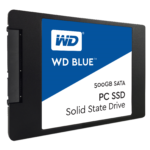
The quietest NAS drive media, I am sorry to tell you, is not a hard drive but an SSD, in fact, it is all SSD. There are, of course, some NAS hard drives that are quieter than others and if you go for a regular WD Red or Seagate ironwolf, at around 1-2TB then that is as quiet as it gets for NAS hard drives. But if you are really sensitive to noise, and want to avoid the clicks, whirs and spins of a hard drive in your NAS chassis, then you are recommended to purchase SSD for your installation. Be warned though, that the low noise, low vibration and low temperature come at a price and SSD is still 3-5x times more expensive than traditional hard drives.
NAS Hard Drive to Avoid in 2018

Even though the construction of a hard drive is very similar on every NAS drive, many of them are constructed to focus on a specific advantage (see the options above), but what about when an HDD media for NAS is designed to try to do everything? A classic example of a drive that tries to do too much is the HGST Deskstar NAS drive. All too often you will find the HGST NAS drive at quite a reasonable price, 3-year warranty and 7200rpm. However, failure rates on this NAS drive have proven to be a pinch higher than all other NAS hard drives. Given that it lacks the 5-year Warranty of a Pro Drive, the support and data recovery of the Seagate Ironwolf Pro, you could is gambling your data. Lastly, and I say this with true regret, the HGST NAS hard drives are the noisiest drives I have ever used. SERIOUSLY, once you get to the larger capacities you will often wonder if the drive is broken… it isn’t, it REALLY sounds like that. In all fairness, however, if you don’t mind a noisier NAS drive and or going to be using it in a 1-2 bay NAS for home or non-mission critical data, then I would still recommend the HGST NAS drive – just be aware of its failings.
📧 SUBSCRIBE TO OUR NEWSLETTER 🔔🔒 Join Inner Circle
Get an alert every time something gets added to this specific article!
Want to follow specific category? 📧 Subscribe
This description contains links to Amazon. These links will take you to some of the products mentioned in today's content. As an Amazon Associate, I earn from qualifying purchases. Visit the NASCompares Deal Finder to find the best place to buy this device in your region, based on Service, Support and Reputation - Just Search for your NAS Drive in the Box Below
Need Advice on Data Storage from an Expert?
Finally, for free advice about your setup, just leave a message in the comments below here at NASCompares.com and we will get back to you. Need Help?
Where possible (and where appropriate) please provide as much information about your requirements, as then I can arrange the best answer and solution to your needs. Do not worry about your e-mail address being required, it will NOT be used in a mailing list and will NOT be used in any way other than to respond to your enquiry.
Need Help?
Where possible (and where appropriate) please provide as much information about your requirements, as then I can arrange the best answer and solution to your needs. Do not worry about your e-mail address being required, it will NOT be used in a mailing list and will NOT be used in any way other than to respond to your enquiry.
If you like this service, please consider supporting us.
We use affiliate links on the blog allowing NAScompares information and advice service to be free of charge to you.Anything you purchase on the day you click on our links will generate a small commission which isused to run the website. Here is a link for Amazon and B&H.You can also get me a ☕ Ko-fi or old school Paypal. Thanks!To find out more about how to support this advice service check HEREIf you need to fix or configure a NAS, check Fiver
Have you thought about helping others with your knowledge? Find Instructions Here
Alternatively, why not ask me on the ASK NASCompares forum, by clicking the button below. This is a community hub that serves as a place that I can answer your question, chew the fat, share new release information and even get corrections posted. I will always get around to answering ALL queries, but as a one-man operation, I cannot promise speed! So by sharing your query in the ASK NASCompares section below, you can get a better range of solutions and suggestions, alongside my own.

|
 |
Private 🔒 Inner Circle content in last few days :
Synology FS200T NAS is STILL COMING... But... WHY?
Gl.iNet vs UniFi Travel Routers - Which Should You Buy?
UnifyDrive UP6 Mobile NAS Review
UniFi Travel Router Tests - Aeroplane Sharing, WiFi Portals, Power Draw, Heat and More
UGREEN iDX6011 Pro NAS Review
Beelink ME PRO NAS Review
Access content via Patreon or KO-FI
Synology FS200T NAS is STILL COMING... But... WHY?
Gl.iNet vs UniFi Travel Routers - Which Should You Buy?
UnifyDrive UP6 Mobile NAS Review
UniFi Travel Router Tests - Aeroplane Sharing, WiFi Portals, Power Draw, Heat and More
UGREEN iDX6011 Pro NAS Review
Beelink ME PRO NAS Review
Access content via Patreon or KO-FI
Discover more from NAS Compares
Subscribe to get the latest posts sent to your email.



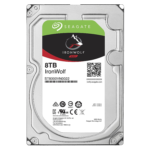
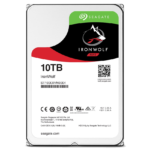

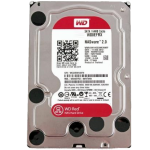
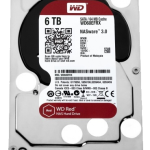
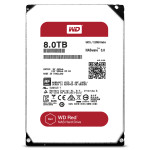
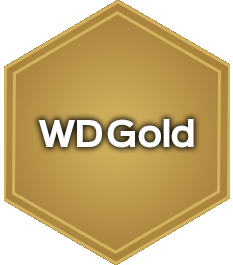
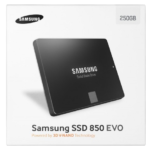



This vid has been helpful, especially going through some of the comments. I got a good deal on 10tb hard drive, it would just take a bit before it was shipped but for the price I didn’t mind. I’ve been going every afternoon to see if it had shipped when I noticed the NAS thing and thought what the hell is a NAS? Before coming here I considered cancelling the order. Another revelation was learning regular hard drives seemingly need some nap time… yeah for my pc it’s always been that brief reboot period when installing updates, who knew?
REPLY ON YOUTUBE
Honestly, buy the cheapest drives for a NVR, that is my opinion, and if they happen to be enterprise drives, great. Mission critical data does not exist on a NVR.
REPLY ON YOUTUBE
yo great info! Quick suggestion, fix your audio syncing. The audio is off from your lips when talking. If you want help doing that I can help ya quick.
REPLY ON YOUTUBE
Thanks!
REPLY ON YOUTUBE
Good lord it takes this guy forever to get to the point.
REPLY ON YOUTUBE
too long
REPLY ON YOUTUBE
Slow down the cadence.
Learn from professional presenters.
Motor Mouth is not desirable as it forces
the listener to be hyper-focused on what you are saying.
Go TOILETTE first before starting your presentation.
And remember it is not a RACE
REPLY ON YOUTUBE
I am using fork
REPLY ON YOUTUBE
ice cream spoon in the tea would go quite nice actually
REPLY ON YOUTUBE
Black: High performance for gaming, editing, and intensive tasks.
Blue: Balanced performance for general everyday use.
Green: Eco-friendly, low-power for storage and backup.
Red: Optimized for NAS systems and RAID setups.
Purple: Tailored for surveillance, supports continuous video recording.
Gold: Enterprise-grade, reliable for servers and data centers.
REPLY ON YOUTUBE
I liked and subscribed thanks ????????
REPLY ON YOUTUBE
Just checked prices and the difference between NAS and “normal” drives is too little to matter.
REPLY ON YOUTUBE
Can I use a NAS Hardrive as a storage on my PC Build ?
REPLY ON YOUTUBE
I been using a Red 6TB in my gaming pc for years perfectly fine. I don’t make big income and wanted something that will last.
REPLY ON YOUTUBE
I used Raptors back in the ’90’s.
REPLY ON YOUTUBE
Can I Install Used Seagate IronWolf Pro, 6 TB (its for 195aed in facebook marketplace) , to a Desktop? i have an ASUS B360M-K motherboard trying to do a PC build
REPLY ON YOUTUBE
Colors*
REPLY ON YOUTUBE
I have one clarification question for my next build and/or a possible take away. Based on your video… it is safe to assume i should not put a regular 5400rpm hard 3.5 drive into a NAS but in theory can do the opposite. Seems I CAN put a 3.5 mm 7200 10gig NAS drive in a computer for deep onboard file storage? Over the next year, I plan to stagger build a PC then NAS, and was hoping to the use larger capacity 3.5 drives in my PC first and then migrate those cold storage drives to the upcoming NAS down the road (buy once/cry once) will I run into any issues with this plan? will I have to offload data before building the NAS file system repositories on those 3.5s or can it adapt? Am I missing anything else unforeseeable? (I haz small lizard brainz)
REPLY ON YOUTUBE
So which one is good for archival type of storage. For long period of times?
Is WD black good?
REPLY ON YOUTUBE
On of the worst hard disk i had was wd…i lost my huge data..so i reqest to keep away from this..
REPLY ON YOUTUBE
So… what’s the deal with the (phony ? ????) book cabinet? At first I noticed some books that look very similar, but when you observe this more closely, obviously with a WD purple built for surveillance, you will notice that the book pattern, so the books in sequence repeat themselves on every shelf. Unless ofcourse, something is wrong with the Raid stripes on my wd purple nas! ????
REPLY ON YOUTUBE
I have my NAS set up to spin down HDDs after 30 min of no access and the only drives to have failed in the time have all been Seagate with Hichai and WD drives still going 10 years later, the replacements were Toshibas so we will see if they can keep up with their 20gb ancestor from 20+ years ago.
REPLY ON YOUTUBE
The different SKU might not entirely be a scam, but the difference in pricing most certainly is. What makes the WD Purple 40% more expensive to manufactured compared to their Ultrastar Datacenter Drives in the same capacity?!?
REPLY ON YOUTUBE
I know this is a really old video but I want to put in my $0.02 so I might help some people…
Having worked in many data centers for a hand full of storage companies I can say a large portion of the hard drives they use are bog standard “consumer* 7200 rpm SATA HDDs, not some special type “designed” for NAS, RAID, or data center use. There is essentially no difference between drives labeled for “NAS”, “Desktop”, “Data Center”, etc.
It doesn’t matter if you use a drive in RAID or on its own either, the drives have no idea they are in RAID so the idea that one drive can better deal with another drive in the array failing is complete nonsense. This video just reiterates what hard drive makers want you to believe so you’ll spend more on hard drives.
For anyone trying to figure out what line of drive you should get for your NAS just get the “desktop drive” in the capacity you want.
REPLY ON YOUTUBE
Why is there no mention of Error Recovery Control (ERC) / Time Limited Error Recovery (TLER) as another significant difference between standard desktop use drives and NAS drives? You want ERC in a drive intended for raid so it doesnt hang when an intermittent problem occurs and break your raid by dropping the drive while it re attempts to access the block before it gives up and marks it as a bad block. And not Ideal in a single drive use as you want the drive to actually try to access the data because you have no redundancy. In a single drive use that data isn’t stored anywhere else so its not beneficial to just drop it at the first sign of a read delay.
REPLY ON YOUTUBE
Buzilsa soz bo’ladimi
REPLY ON YOUTUBE
Hello, can i use WD Red 4tb just as file storage with Orico HDD Enclosure ?
REPLY ON YOUTUBE
Just found this video https://www.youtube.com/watch?v=9AMFz3riawI – they teardowned the Seagate Baracuda Gaming Dock.
its said on the Seagate´s official product page that:
“””…Massive Storage Space – Archive projects, store older games and media files, plus enjoy plenty of space for tomorrow’s hot titles with 4 TB of expansive hard drive capacity….”””
And now take a gueas what HDD is inside??? – What Seagate put there as a HDD for a large amount of data???
????????????Iron wolf pro NAS with a slot for SSD. ????????????
REPLY ON YOUTUBE
❓ Can I use Irowolf pro in my desktop just for data? I mean I have system on ssd and I need a disk for thousands of photos/videos (stored on desktop not on NAS – to be able to work with them)? I dont want baracuda (8TB) because they are just 5400 and I want 7200 for sure. Baracuda pro sells no shop any more 🙁 Even firecuda are not sold. So which disk for data on my desktop❓
REPLY ON YOUTUBE
A NAS HD will ALWAYS be good for desktop purposes. If not overkill then still always better than a NON Nas HD.
Yes we all know SSD is THE fast boot option but most users need storage space as well.
Lesser programmes we are happy to run at a slower pace also fit the bill for a second, slower storage option for various budgets, like a HD as a D:/ or whatever the owner chooses.
Gone are the days D:/ was reserved for a CD/DVD/Even Blue Ray player.
The point is, do you do enough on your PC that you need a HD as robust as a NAS HD?. If you are like me and live on your PC the answer is YES!
First I will be getting a 10TB Nas drive to compress and hopefully save all the data on my 2 x 10TB hd’s that are both external and not full, so with Winrar/zip I may get there lol. I feel the need to back up as they have both had issues even with the less demanding USB 3.0 connection. Too many USB connections also slows down boot up BAD!
Already backed up basic needs to a separate HD but…….
The 2 x 10Tb externals overheat in their external cases because I am using them as I would a not very busy NAS.
Constantly losing connection while processing several hundred video files in sequence these days, so waking to a morning PC that did SFA overnight, whereas a NAS system would have sorted it by NEVER being disconnected due to USB issues 🙁
Time to stretch the budget!
Thank for the affirmation that NAS drives ARE ACTUALLY BETTER! Cheers 🙂
REPLY ON YOUTUBE
Platter density is a less discussed spec that interests me. Higher density increases reliability from less parts and less vibration.
REPLY ON YOUTUBE
For the people who want to skip the ridiculous ramble and just want the answer 2:38 you’re welcome.
REPLY ON YOUTUBE
Wanting to buy a NAS for the first time, and this channel is pure gold 😀
REPLY ON YOUTUBE
The “R” in RAID is “Redundant” not “Random”. Good informative video though.
REPLY ON YOUTUBE
I installed 4TB WD NAS HDD 8 years ago in my regular desktop and it still running with out any problem.
REPLY ON YOUTUBE
can i put NAS HDD on my laptop? (aka putting it inside the motherboard’s slot)
REPLY ON YOUTUBE
Could i use a NAS drive for backup(for my Pc files etc)? Let’s say i can get them cheap. Is it even compatible with win 10?
REPLY ON YOUTUBE
Hi thanks for the great content. I am currently thinking of moving from local hdds to nas. What if I use a NAS HDD for desktop first to copy some data from local storage then put the HDD to a NAS system? Does it work?
REPLY ON YOUTUBE
Can I put a NAS hdd to my gamer desktop and run games from it well?
REPLY ON YOUTUBE
that is a very tacky wallpaper.
either have a shelf full of books or don’t.
why pretend to?
REPLY ON YOUTUBE
i have in my nas disk from running 2013 – 2021 on 6 desktop hdd. toshiba p300 and wd green. no problems at all 😉 so bullshit.
REPLY ON YOUTUBE
This guy is clueless
REPLY ON YOUTUBE
The answer to the question starts at 2:40 but doesn’t really help with the problem.
REPLY ON YOUTUBE
I bought 2 x nas hhd for my pc so that I can put all my photos and videos onto them.
REPLY ON YOUTUBE
What would you recommend for a PC running RAID 1 but used as a Blue Iris server? I know solid state is the best but not affordable in 2TB. I was looking at a Seagate BarraCuda 7200 256MB ST2000DM008. Only running 5 cameras but the drives I’m running now are 5400 and cuts off much of the video.
REPLY ON YOUTUBE
How about some braces?
REPLY ON YOUTUBE
So I should buy a NAS to store all my videos and pictures? I want to use it as a data-grave.
REPLY ON YOUTUBE
I guess that there won’t be a problem running a NAS Drive in my regular Desktop PC(for dumping my old Data)?
It’s not failing because of “Under-Utilisation” or something?
REPLY ON YOUTUBE
This guy talks too much and is not correct. I Have 4 nas setups that I’ve had running for 6 + years 24/7. The WD Reds are marked NAS and they are only 5400 RPM. They are SLOW but run cooler and are cheaper to make.
Most nas drives are 5400-5900 rpm they run coolers but are not ENTERPRISE server drives.
I have a 5TB raid 1 Hitachi 7200 RPM drives that way out perform official nas drives. They have been up 6+ years 24/7. My first drives to go bad were the WD Reds not the 7200 RPM drives.
I think its mostly marketing you can put any HD pair in a NAS and they will run fine. I have not found WD Reds to last any longer than any other HD and less than say Dell Enterprise SAS drives.
The vibration stuff is hogwash too, ive not found a issue with non nas drives. I have put NAS drives in a Dell server to test and they were dog slow vs the 7200 RPM enterprise drives and way slower than the 10,000 and 15,000 RPM sas drives. Again My SAS drives are all raid (LSI controller) and are on 24/7 for years. My home PC is on 24/7 I never turn it off and my 4TB 3TB 7200 rpm and SSD are all fine. 3 years 24/7. I leave all my PCs on never turn them off. Its harder on the components to turn ON/OFF/ON/OFF all those heating and cooling cycles does more harm than leaving it on.
I think a good compromise is the Iron Wolf 5900 NAS drives they perform around 180MB/sec which is decent.
REPLY ON YOUTUBE
I have a 8TB WD Gold for art designs, photography and games, too much?
REPLY ON YOUTUBE
Plz tell me how to buy a same model hard disk… Just all wd blue internal hard drive are same or not…
How to buy a same model hard disk for my laptop…just wauching a Serial number or model number.
REPLY ON YOUTUBE